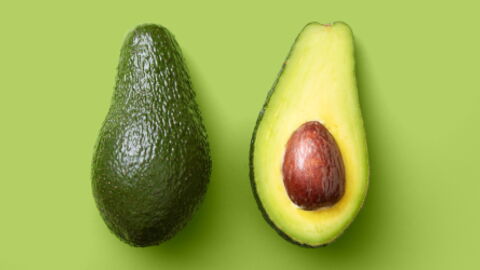If you want to improve your flexibility because it's something that will benefit your spine, hips, and help you avoid back problems, your best allies are disciplines such as yoga. But there are also two other pillars that support this quality: adequate hydration and proper nutrition.
Discover our latest podcast
One of the essential guidelines is to include a wide variety of ripe, fresh fruits in your diet, which are excellent for improving flexibility due to their high water content or their ability to eliminate acids. Dark green leafy vegetables, various types of protein, and certain spices will also help you in this task. We review which foods work to make you more flexible and improve your elasticity.
Fruits
There are lots of fruits that can help your body's elasticity. Local seasonal fruit is essential for getting plenty of vitamins, especially vitamin C, the key to fighting the free radicals we produce when we exercise. In this sense, citrus fruits and fruits such as grapes are highly recommended. They are rich in flavonoids and can help improve joint health or muscle recovery, as well as prevent diseases such as cancer.
Sources of omega 3 and 6
Foods that are rich in essential polyunsaturated fatty acids such as omega-3 offer multiple health benefits, from boosting heart health to lowering blood pressure and reducing inflammation. Several studies suggest that these acids may improve joint mobility in adults with osteoarthritis. Foods rich in Omega-3 include avocados, walnuts, radishes, oats, spinach and flaxseed oil.

Beans
Protein-rich foods are key to maintaining a supple figure, preventing injuries, and avoiding the loss of muscle mass. In this regard, beans are highly recommended, economical, sustainable, and versatile. They are an ideal source of vegetable protein. In the fall, make the most of broad beans, lentils, beans or chickpeas to prepare stews, casseroles, creams or salads.
Sesame seeds and Tahini
Sesame seeds are ideal for incorporating into your regular diet: they provide fibre, promote digestive health, lower cholesterol, are a great source of vegetable protein, lower blood pressure, fight inflammation linked to many chronic diseases, control sugar, are rich in antioxidants such as lignans, improve your immune system and soothe joint pain.

Ginger
Including ginger in your diet can help promote flexibility because it has a stimulating effect on the circulatory system and also has the ability to reduce inflammation, which can contribute to greater flexibility. You can buy fresh ginger and include it in your cooking or buy a ginger herbal tea, as well as have it in powdered form for multiple preparations. It also helps with weight control.
Turmeric
Its properties are manifold, and like ginger, it is also anti-inflammatory and useful for improving circulation. It is useful for muscle repair, making it a complete winner when it comes to flexibility. Among other extra benefits, it allows you to improve memory and mood, as well as benefit your cognitive performance.















